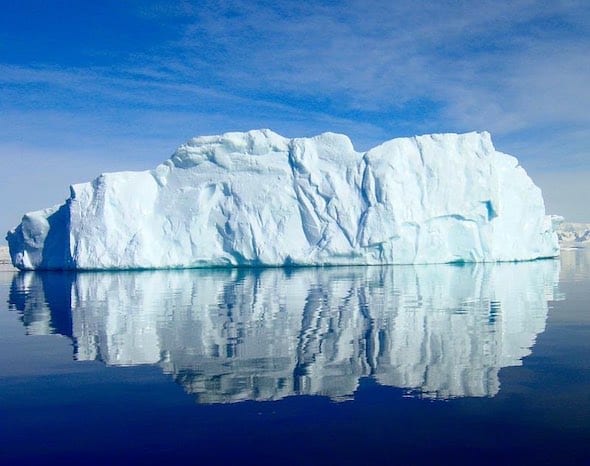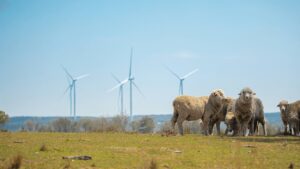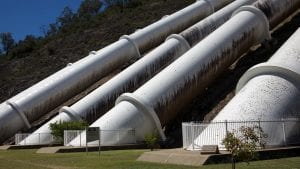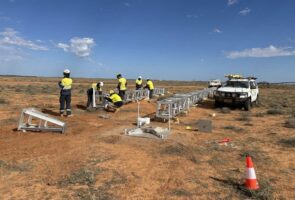Three decades ago when serious debate on human-induced climate change began globally, a great deal of statesmanship was on display. A preparedness to recognise that this was an issue which transcended nation states, ideologies and political parties. An issue which had to be addressed proactively in the long-term interests of humanity, even if the existential nature of climate risk was far less clear cut than it is today.

Then, as global institutions were put in place to take up this challenge, and the extent of change this would impose on the fossil-fuel dominated world became more obvious, the forces of resistance mobilised. Today, despite the diplomatic triumph of the 2015 Paris Climate Agreement, debate around climate change policy has never been more dysfunctional, indeed Orwellian, particularly in Australia.
In his book 1984, George Orwell describes a double-speak totalitarian state where most of the population accepts “the most flagrant violations of reality, because they never fully grasped the enormity of what was demanded of them, and were not sufficiently interested in public events to notice what was happening. By lack of understanding they remained sane.”
Orwell could have been writing about climate change and policymaking. International agreements talk of limiting global warming to 1.5–2°C, but in reality they set the world on a path of 3–5°C. Goals are reaffirmed, only to be abandoned. Coal, by definition, is “clean”. Just 1°C of warming is already dangerous, but this cannot be said. The planetary future is hostage to myopic, national self-interest. Action is delayed on the assumption that as yet unproven technologies will save the day, decades hence. The risks are existential, but it is “alarmist” to say so. A one-in-two chance of missing a goal is normalised as reasonable.
Climate policymaking for years now has been cognitively dissonant, “a flagrant violation of reality”. So the lack of understanding amongst the public and elites of the full measure of the climate challenge is unsurprising. Yet most Australians sense where we are heading: three-quarters of people see climate change as a catastrophic risk, and half see our way of life ending within the next 100 years.
The previous norms of statesmanship and long-term thinking have long since disappeared, replaced by an obsession with short-term political and commercial advantage Particularly where climate and energy policy is concerned.
An emergency-scale transition to a post-fossil fuel world is essential to address climate change. But this is considered to be too disruptive. The orthodoxy is that there is time for an orderly economic transition within the current short-termist political paradigm. Discussion of what would be safe –– less warming that we presently experience –– is non-existent. And so we have a policy failure of epic proportions.
In the magical thinking of Australian policymakers, a pathway of gradual change, constructed over many decades in a growing, prosperous, coal-fired world stretches enticingly before us. The world not imagined is the one that now exists: of looming financial instability; of a global crisis of political legitimacy; of a sustainability crisis that extends far beyond climate change to include all the fundamentals of human existence, and of severe global energy sector dislocation.
The Intergovernmental Panel on Climate Change (IPCC), was established by the UN in 1988, charged with regularly assessing the global consensus on climate science as a basis for policy-making. The IPCC Assessment Reports produced every 5-6 years, play a critical part in the public framing of the climate narrative. The IPCC has done indispensable work in pulling together a periodic consensus of what must be the most exhaustive scientific investigation in history.
However, the process suffers from all the dangers of consensus-building in such a wide-ranging and complex arena. For example, it’s reports, of necessity, do not always contain the latest available information. Consensus-building can lead to “least drama” lowest-common-denominator outcomes which overlook critical issues, particularly the implications of the “fat-tails” of probability distributions, namely high impact but relatively low-probability events where scientific knowledge is limited. Vested interest pressure is acute; climate denialists accuse the IPCC of alarmism, whereas climate action proponents consider the IPCC to be far too conservative. To cap it all, the IPCC conclusions are subject to intense political oversight before being released, which has had the effect of substantially watering-down sound scientific findings.
These limitations were not of overriding importance in earlier years. However it is now clear that the risks are far greater than previously anticipated. Climate change has moved from the twilight period of much talk but limited impact; it is now turning nasty, as witnessed with Hurricanes Harvey and Irma, and in South Asia, not to forget Cyclone Debbie in Australia earlier this year.
The distinction between climate science and risk is now the critical issue, for the two are not the same. Scientific reticence, the reluctance to spell out the full risk implications of climate science in the absence of perfect information, has become a major problem, allowing politicians to ignore the real dangers we face. But waiting for perfect information means it will be too late to act, as any sensible risk manager or military leader knows only too well. Like an iceberg, there is great danger in ignoring “What lies beneath”.
The irresponsible invective passing for political debate on climate and energy policy is replete with assurances that politicians are devoted to ensuring the security of the Australian people. Nothing could be further from the truth. Those assurances are meaningless unless climate risk is honestly addressed and that must happen long before we are confronted with our own equivalent of Irma. At present that risk is totally ignored.
This article is extracted from: “What Lies Beneath – The Scientific Understatement of Climate Risks”, authored by Ian Dunlop, Advisory Board Member and David Spratt, Research Director, and published this week by Breakthrough: National Centre for Climate Restoration: https://www.breakthroughonline.org.au/whatliesbeneath








